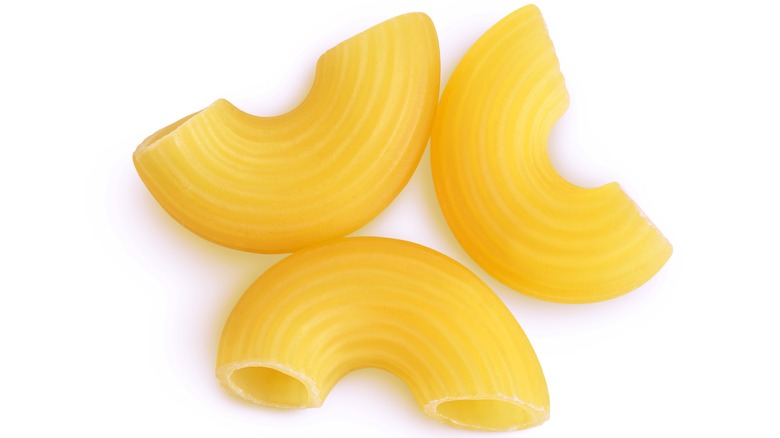The Greek Mythological Inspirations Behind Macaroni
If our food preferences were subjected to a general census, it's possible that macaroni and cheese would emerge as the most favored dish. There are several amazing mac and cheese recipes out there. The dish generally brings together macaroni noodles and various types of cheese to make a delightfully gooey pile of pasta.
According to HowStuffWorks, macaroni and cheese has been made for hundreds of years. A 13th-century Italian recipe called on chefs to bake layers of pasta and parmesan cheese, and in the 1930s, Kraft Foods debuted its famous mac and cheese boxed dinner. Despite its popularity, the dish doesn't represent the earliest appearances of macaroni pasta in history. For that, you need to go back thousands of years, and travel to the depths of the Underworld, likely coming face to face with familiar mythological figures along the way to learn about the Grecian history of macaroni noodles, per Mental Floss.
The mythical figures of Greece
Mental Floss explains that in ancient Greece, barley-based meals were referred to as makaria. One particular pasta-adjacent barely dish became a staple at funerals. In fact, in modern times, members of the Greek Orthodox Church end their funerals by having a makaria meal named after this ancient food.
Mythology Source tells the story of Macaria, who was the daughter of Heracles. Euripedes' fifth-century B.C. play "Children of Heracles" follows Macaria and her siblings after the death of the titular patriarch. King Eurystheus attempted to round up Heracles' children after his death, ultimately leading Athens, where the children were being sheltered, to war. The only way to avoid defeat in the impending battle was to sacrifice a woman to Persephone, the wife of Hades, King of the Underworld. Macaria volunteered to die, and her sacrifice led to the defeat of King Eurystheus. Her connection to Persephone and Hades, the two most prominent figures in Greek mythology's Underworld, could have earned the barley-based funeral meal the name makaria.
The history of pasta in ancient Greece
Though it's commonly believed that pasta originated with the dawn of noodles in China, that's not necessarily the entire story. In his book "Dining With the Ancient Romans," Giorgio Franchetti said that pasta first appeared in around 1000 B.C. in the form of a flat Grecian noodle called laganon (via South China Morning Post). When stacked together and combined with other ingredients, the laganon noodles became one of the predecessors to the modern layered lasagna.
It's possible that though macaroni's name is derived from Greek mythology and Macaria, its invention could still be attributed to Italian culture. According to Mental Floss, using barley to make makaria was first adopted in a Grecian colony called Neapolis when Greek settlers observed locals making the dish. Today, we know Neapolis as Naples, which could mean that the Greeks learned how to make macaroni from the Italians.


